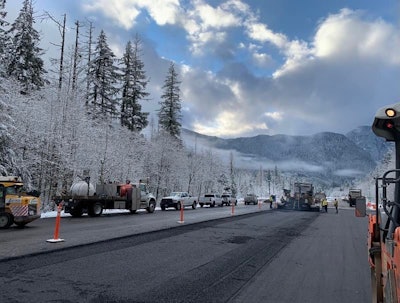
On November 15, 2021, President Joe Biden signed the Infrastructure Investment and Jobs Act (IIJA) into law. The IIJA, also known as the Bipartisan Infrastructure Law, is the largest long-term investment in our infrastructure and economy in our Nation’s history. It provides $550 billion over fiscal years 2022 through 2026 in new Federal investment in infrastructure, including in roads, bridges, mass transit, water infrastructure, resilience and broadband.
As a result, the Federal Highway Administration (FHWA) has announced that they will be distributing over $50 billion in funds in fiscal year 2022, a 20% increase from 2021 funding levels. The FHWA says this is the largest apportionment in decades.
“We are committed to delivering on the promise of the Bipartisan Infrastructure Law, and putting people to work modernizing our infrastructure and making it safer, more sustainable, and more efficient,” said Secretary Pete Buttigieg.
All 50 states will receive their share of the $52.5 billion in funding, distributed annually by FHWA for the Federal-aid Highway Program based on a statutory formula contained in the Bipartisan Infrastructure Law
In implementing the Bipartisan Infrastructure Law, the U.S. Department of Transportation (USDOT) and FHWA believe the Federal-aid Highway Program apportionments, as well as additional formula funding under the Highway Infrastructure Program and discretionary funding to be made available through new and existing program grants, will address long-overdue needs hampering the safety and performance of America’s roads, bridges and highways.
Today’s funding will help reduce the backlog of major repairs for highways and bridges and increase the number of communities that have strategies to reduce traffic deaths and serious injuries.
Highway Specific Funding Distribution
Our crumbling roadways are one of the big winners under the IIJA. The Bipartisan Infrastructure Law provides the basis for FHWA programs and activities through September 30, 2026. It makes a once-in-a-generation investment of $350 billion in highway programs. This includes the largest dedicated bridge investment since the construction of the Interstate Highway System.
A dozen new highway programs are a part of the plan and states will be eligible to compete for funding under these programs. New programs under the Bipartisan Infrastructure Law focus on key infrastructure priorities including rehabilitating bridges in critical need of repair, reducing carbon emissions, increasing system resilience, removing barriers to connecting communities, and improving mobility and access to economic opportunity.
Additional funding to be announced in 2022 will contribute to:
- fixing up to 10 of the most economically significant bridges in the nation, and repairing over 15,000 smaller bridges across the country;
- reconnecting as many as 20 communities by removing portions of interstates and redesigning rural main streets; and
- spurring the creation of a nationwide network of 500,000 EV chargers by 2030, including a special program for smaller and underserved communities.
“Providing states with information on their apportioned funds today is an important first step in using the resources provided in the Bipartisan Infrastructure Law to make transportation systems across the country safer and more resilient,” said Deputy Federal Highway Administrator Stephanie Pollack. “We look forward to working with transportation agencies and the communities they serve to use these resources to build a better America.”
Federal-aid Highway Program funds are authorized periodically by Congress in multi-year laws to assist the States in providing for construction, reconstruction, and improvement of highways and bridges on eligible Federal-aid routes and for other special purpose programs and projects. The Bipartisan Infrastructure Law establishes or continues FHWA programs and authorizes funding for those programs from the Highway Trust Fund.
As the first step, FHWA is distributing these funds through a process known as an apportionment, using a statutory formula to determine the amount available to each State. In addition to the apportionment of funding, FHWA will issue obligation limitation, which allows States to commit a portion of their apportioned funding, for the period through February 18, 2022, when the current Continuing Resolution for Federal Fiscal Year 2022 appropriations ends.
Obligation limitation represents the ability of a State or other entity to enter into a project using Federal funds, with the Federal government making a binding promise to pay or reimburse the State or other entity for the Federal share of the project’s eligible costs.




















